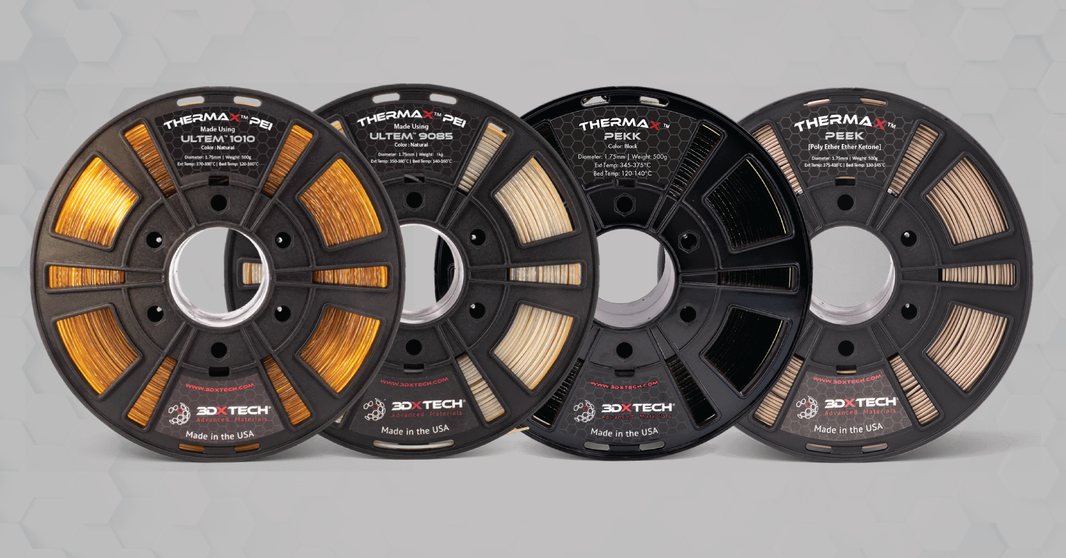ESD-Safe Filaments for Electronics Manufacturing and Defense
In industries where electrostatic discharge (ESD) protection is critical, the right material choice can make or break production quality. ESD-safe 3D printing filaments provide engineers with reliable solutions for creating jigs, fixtures, tooling, prototypes, and end-use parts that protect sensitive electronic components. These advanced materials are widely used in electronics manufacturing, aerospace, defense, and industrial applications where failure is not an option.
Why Choose ESD-Safe Filaments?
Traditional plastics can accumulate static electricity, posing a risk to delicate electronics and assemblies. ESD-safe filaments are engineered to:
- Prevent Damage: Dissipate static charges that could harm sensitive components.
- Ensure Safety: Reduce the risk of electrostatic sparks in defense and aerospace environments.
- Enable Compliance: Support manufacturing processes that require strict ESD-safe standards.
- Improve Reliability: Protect critical systems from latent failures caused by static discharge.
Types of ESD-Safe Filaments
ESD-PLA
ESD-PLA filament offers an easy-to-print solution for ESD-sensitive applications. It combines good dimensional accuracy with static dissipative properties, making it ideal for prototypes, jigs, and fixtures in electronics manufacturing.
ESD-ABS
ESD-ABS filament provides toughness and higher temperature resistance compared to PLA. It’s suitable for functional tooling and durable end-use parts where impact resistance and stability are required.
ESD-PC
ESD-Polycarbonate (ESD-PC) combines strength, heat resistance, and electrostatic protection. It’s often used in aerospace and defense tooling where parts must withstand both mechanical stress and sensitive environments.
ESD-Ultem 1010
ESD-Ultem 1010 is an ultra-performance filament designed for extreme environments. It offers high heat deflection, chemical resistance, and inherent flame retardancy, making it the go-to choice for mission-critical defense and aerospace components.
ESD-PETG
ESD-PETG filament offers a balance of strength, ease of printing, and chemical resistance. It’s widely used for fixtures, housings, and industrial tooling where both durability and ESD safety are required.
Applications Across Industries
- Electronics Manufacturing: Fixtures, PCB handling trays, and custom tooling that safeguard components from electrostatic discharge.
- Aerospace: Lightweight, durable ESD-safe parts for assembly, testing, and maintenance tools.
- Defense: Mission-critical tooling and end-use parts where ESD protection ensures system reliability.
- Industrial Manufacturing: ESD-safe housings, jigs, and fixtures used in high-volume production environments.
Benefits of Using ESD-Safe Filaments
- Protects Sensitive Electronics: Prevents costly damage to PCBs, sensors, and microchips.
- Improves Manufacturing Efficiency: Enables reliable tooling and reduces risk of production delays.
- Supports Compliance: Meets industry ESD protection standards for electronics and defense applications.
- Versatile Material Options: Choose from ESD-PLA, ABS, PC, Ultem 1010, and PETG based on application needs.
Conclusion
From prototypes to end-use parts, ESD-safe filaments are critical for protecting sensitive systems and ensuring product reliability. With options ranging from ESD-PLA and ESD-ABS for cost-effective applications to high-performance ESD-PC and ESD-Ultem 1010 for aerospace and defense, engineers have a wide spectrum of choices. ESD-PETG further adds a versatile solution for industrial tooling and housings. By integrating these materials into production, manufacturers can achieve both performance and protection in their workflows.






